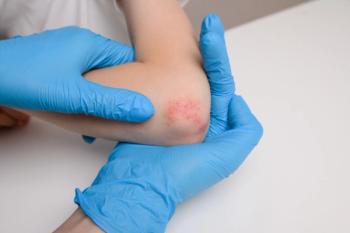
Underrepresented Minority Patients Found to Have Altered Tumor Immune Microenvironment
Cytokine signaling pathways in sera from underrepresented minority patients were found to be enriched.
Underrepresented minority patients have an altered tumor immune microenvironment that may impact their risk of developing immune-related adverse events and how they respond to checkpoint inhibition, according to research presented at the 2023 ASCO Annual Meeting.1
Investigators conducted a study to determine if patients in this population with melanoma have a different baseline autoantibody profile compared with non-Hispanic White patients. Differences in the immuno-biology of acral melanoma and cutaneous melanoma between the 2 populations were also explored.
The study cohort included 220 patients, of which 35 were part of an underrepresented minority group and 185 were non-Hispanic White. Data on pre-treatment sera autoantibody profiles was gathered from the Checkmate-238 (NCT02388906) and Checkmate-915 (NCT03068455) studies, as well as New York University’s melanoma program database.
Single cell RNA-sequencing in both acral melanoma and cutaneous melanoma tumor tissue was done to test whether expression of genes whose proteins were associated with immune-related adverse events were preferentially expressed in acral melanoma tissue.
Investigators found that underrepresented minority patients and non-Hispanic White patients with grade 3 to 4 immune-related adverse events had different autoantibody profiles. A subset of these autoantibody targets was preferentially expressed in either acral melanoma or cutaneous melanoma tissues. However, other autoantibody targets were undetected in those melanoma subtypes.
Additionally, cytokine signaling pathways in sera from underrepresented minority patients were enriched compared to non-Hispanic white patients.
“An integrative analysis of both the tumor and systemic immune environments is needed to better understand molecular links between response to checkpoint inhibition and immune-related adverse events in underrepresented minority and non-Hispanic white melanoma patients,” the authors concluded.
Reference
1. Ibrahim M, Angulo P, Fa’ak F, et al. Determinants of racial disparities in immune-related adverse events (irAE) with checkpoint inhibition (ICI) in melanoma. J Clin Oncol. 2023 (suppl 16; abstr 9549). doi:10.1200/JCO.2023.41.16_suppl.9549
Newsletter
Pharmacy practice is always changing. Stay ahead of the curve with the Drug Topics newsletter and get the latest drug information, industry trends, and patient care tips.























